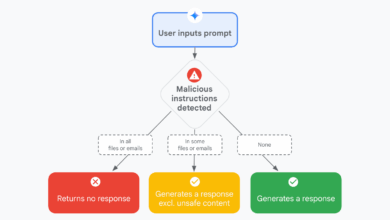“SOC Benefits for Small Businesses: Why You Need Them

Small businesses face an uncomfortable reality in today’s digital world. Cyber criminals view them as attractive targets precisely because many lack robust security defenses. While large corporations invest millions in cybersecurity infrastructure, small businesses often struggle to justify the expense of comprehensive security operations. However, the SOC benefits available through modern managed services have changed this equation dramatically.
Many small business owners mistakenly believe that cybersecurity is primarily a concern for large enterprises. This misconception leaves them vulnerable to attacks that can devastate their operations, finances, and reputation. Understanding the real value of Security Operations Center (SOC) services can help small businesses protect themselves without breaking their budgets.
Understanding SOC Services for Small Businesses
A Security Operations Center represents a centralized facility where security professionals monitor, detect, and respond to cybersecurity threats around the clock. Traditional SOCs required massive investments in technology, infrastructure, and specialized personnel that put them out of reach for most small businesses.
The emergence of managed SOC services has transformed this situation by allowing multiple organizations to share the costs of sophisticated security infrastructure and expertise. Small businesses can now access the same level of protection that was previously available only to large enterprises.
Core SOC Benefits That Transform Small Business Security
The SOC benefits that matter most to small businesses address their specific vulnerabilities and resource constraints. These advantages go far beyond simple threat detection to provide comprehensive protection that scales with business needs.
24/7 Monitoring and Threat Detection
Small businesses typically operate with limited IT staff who cannot provide round-the-clock security monitoring. Cyber attacks don’t respect business hours, and many sophisticated threats specifically target off-hours when security oversight is minimal.
Professional SOC services provide continuous monitoring that never sleeps. Security analysts work in shifts to ensure that threats are detected and addressed immediately, regardless of when they occur. This constant vigilance significantly reduces the window of opportunity for attackers to cause damage.
Rapid Incident Response
When security incidents occur, response time often determines the difference between minor disruption and catastrophic damage. Small businesses typically lack incident response procedures and trained personnel to handle security emergencies effectively.
SOC services provide immediate incident response capabilities that can contain threats before they spread throughout the organization. Experienced security analysts can quickly assess threats, implement containment measures, and coordinate recovery efforts.
Access to Security Expertise
The cybersecurity skills shortage affects organizations of all sizes, but small businesses face particular challenges in attracting and retaining qualified security professionals. The cost of hiring experienced security analysts often exceeds the budgets of small organizations.
SOC services provide access to teams of certified security professionals with specialized expertise in threat detection, incident response, and forensic analysis. These experts bring years of experience and training that would be prohibitively expensive for small businesses to develop internally.

Financial Advantages of Managed SOC Services
The SOC as a service benefits extend far beyond security improvements to include significant financial advantages that make enterprise-grade protection affordable for small businesses.
Predictable Cost Structure
Building an internal SOC requires substantial upfront investments in technology, infrastructure, and personnel. These costs can be challenging to predict and budget for, particularly as security requirements evolve and threats change.
Managed SOC services provide predictable monthly costs that make budgeting easier while eliminating large capital expenditures. Organizations can access sophisticated security capabilities through operational expenses rather than capital investments.
Reduced Infrastructure Requirements
Internal SOC operations require significant technology investments, including SIEM platforms, threat intelligence feeds, forensic tools, and specialized security software. These tools often require ongoing licensing fees, maintenance costs, and regular updates.
Managed services eliminate the need for these infrastructure investments by providing access to enterprise-grade security tools through shared service models. Small businesses can benefit from sophisticated technology without bearing the full cost of ownership.
Lower Total Cost of Ownership
When considering all costs associated with internal security operations, including personnel, technology, training, and infrastructure, managed SOC services typically provide significant cost savings for small businesses.
The total cost comparison includes:
- Personnel costs, including salaries, benefits, and training expenses
- Technology licensing and maintenance fees
- Infrastructure costs, including hardware and facility requirements
- Ongoing operational expenses, such as threat intelligence and tool updates
Operational Benefits That Improve Business Performance
The benefits of a managed SOC extend beyond security improvements to include operational advantages that can enhance overall business performance and efficiency.
Reduced Downtime and Business Interruption
Security incidents can cause significant business disruption through system outages, data loss, and operational interruptions. Small businesses are particularly vulnerable to these disruptions because they often lack redundant systems and backup procedures.
SOC services help minimize downtime through proactive threat detection and rapid incident response. Early detection and containment prevent minor security events from escalating into major business disruptions.
Improved Compliance Posture
Many small businesses operate in regulated industries that require specific cybersecurity controls and monitoring capabilities. Compliance requirements can be complex and expensive to implement independently.
Managed SOC services often include compliance monitoring and reporting capabilities that help organizations meet regulatory requirements. These services provide documentation and evidence needed for compliance audits while ensuring that security controls operate effectively.
Enhanced Customer Trust and Confidence
Customers increasingly consider cybersecurity capabilities when selecting business partners and service providers. Small businesses that can demonstrate robust security practices gain competitive advantages in their markets.
SOC services provide evidence of professional security management that can be shared with customers, partners, and stakeholders. This transparency builds trust and confidence that can translate into business opportunities and customer retention.
Scalability and Flexibility Advantages
Small businesses need security solutions that can grow and adapt as their organizations evolve. The SOC benefits include scalability and flexibility that traditional security approaches cannot match.
Adaptive Protection Levels
Business security needs change as organizations grow, enter new markets, or adopt new technologies. Fixed security solutions often become inadequate or excessive as business requirements evolve.
Managed SOC services provide adaptive protection that scales with organizational needs. Service levels can be adjusted based on current risk profiles, business activities, and threat environments without requiring major infrastructure changes.
Technology Evolution Support
The cybersecurity technology environment changes rapidly with new threats, tools, and techniques emerging regularly. Keeping pace with these changes requires ongoing investment and expertise that small businesses often cannot maintain.
SOC services provide automatic access to evolving security technologies and capabilities without requiring organizational investments in new tools or training. Service providers continuously update their capabilities to address emerging threats and incorporate new security technologies.
Implementation Considerations for Small Businesses
Successfully realizing SOC benefits requires careful planning and implementation that addresses the specific needs and constraints of small business environments.
Service Provider Selection Criteria
Not all SOC service providers offer the same capabilities or service levels. Small businesses should evaluate providers based on their specific requirements and constraints.
Key evaluation criteria include:
- Experience serving small business markets
- Service level agreements that meet business requirements
- Technology capabilities and tool integration
- Pricing models that fit small business budgets
- Communication and reporting capabilities
Integration with Existing Systems
Effective SOC services must integrate with existing business systems and processes without causing disruption or requiring major infrastructure changes. Service providers should offer flexible integration options that work with current technology environments.
Integration considerations include compatibility with existing security tools, network infrastructure requirements, and data sharing protocols that protect sensitive business information.
Staff Training and Preparation
While managed SOC services reduce the need for internal security expertise, organizations still need staff members who can interface with service providers and implement recommended security measures.
Training requirements typically include basic security awareness, incident response procedures, and communication protocols that ensure effective collaboration with SOC analysts during security events.

Measuring SOC Service Value and ROI
Small businesses need clear metrics to evaluate the value they receive from SOC investments and ensure that services meet their security and business objectives.
Security Metrics and KPIs
Effective SOC services provide regular reporting on security metrics that demonstrate the value of protection services. These metrics help organizations understand their security posture and the effectiveness of their investments.
Important security metrics include threat detection rates, incident response times, false positive reduction, and security control effectiveness measurements that provide objective evidence of service value.
Business Impact Measurements
Beyond security metrics, small businesses should evaluate SOC services based on their impact on business operations, productivity, and risk reduction.
Business impact measurements include downtime reduction, compliance achievement, customer satisfaction improvements, and cost avoidance from prevented security incidents.
Conclusion
The SOC benefits available to small businesses through modern managed services have transformed cybersecurity from an expensive luxury into an affordable necessity. Organizations that continue to operate without professional security monitoring expose themselves to risks that could threaten their survival.
The combination of 24/7 monitoring, expert analysis, rapid response capabilities, and predictable costs makes SOC services an attractive investment for small businesses seeking to protect their digital assets and operations.



